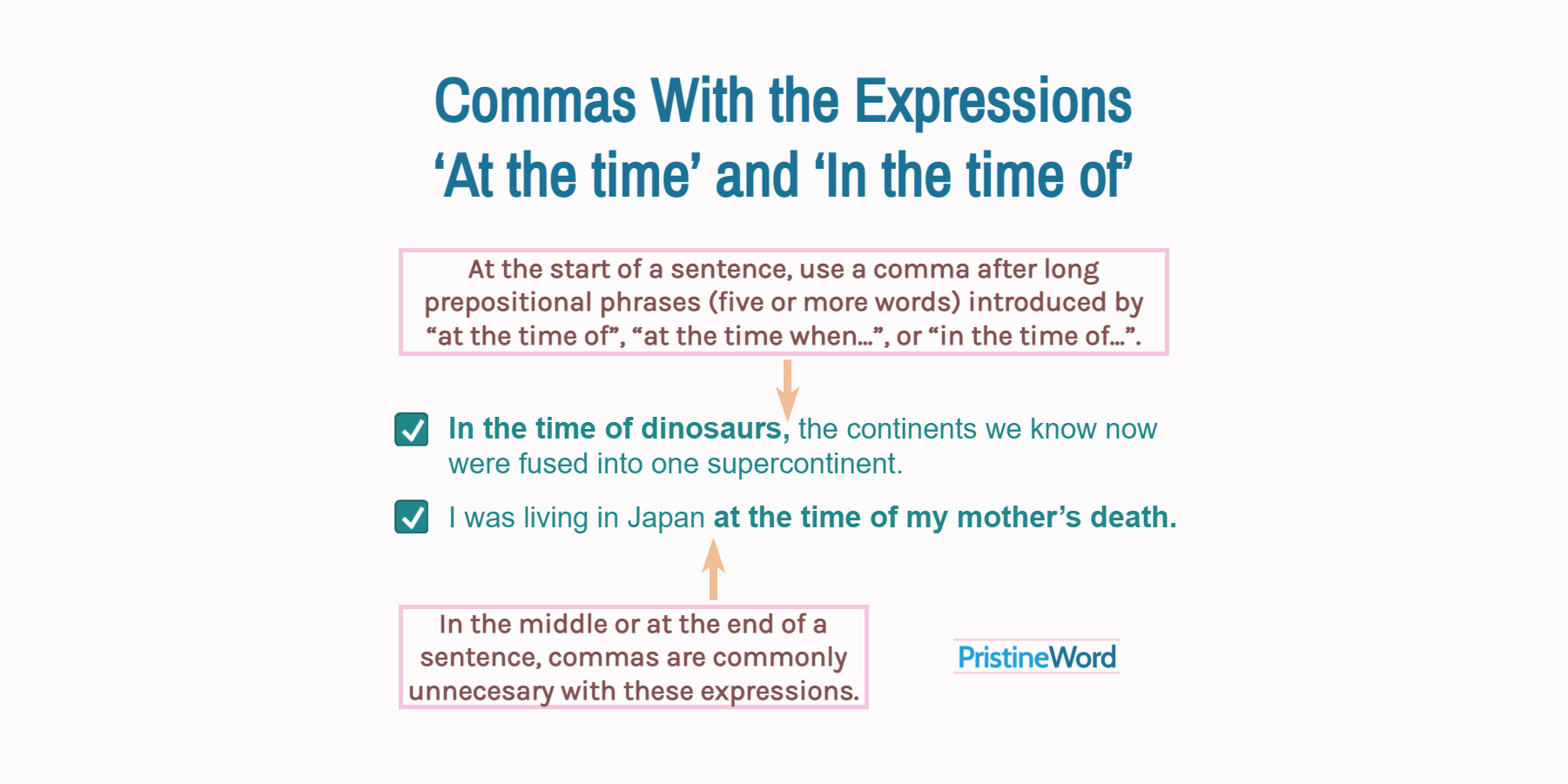At the start of a sentence, use a comma after prepositional phrases introduced by "at the time of", "at the time when", or "in the time of".
At the start of a sentence, use a comma after prepositional phrases introduced by "at the time of", "at the time when", or "in the time of".
In the time of dinosaurs, the continents we know now were fused into one supercontinent.
When using the short introductory phrase “at the time” to mean “back then”, the comma is optional.
At the time I was a young inexperienced first-year player.
In the middle or at the end of a sentence, commas are commonly unnecessary with these expressions.
I was living in Japan at the time of my mother’s death.
Contents
1. Differences Between ‘At the time’ and ‘In the time of’
- "At the time" can be used as a synonym of "back then" (e.g., "I was a nine-year-old child at the time.")
- "At the time of" indicates when something happened (e.g., "A tissue sample was taken at the time of surgery.")
- "At the time when" means "during that period" (e.g., "These two met each other at the time when they were studying in Chicago.")
- "In the time of" means "during the era of" (e.g., "In the time of the dinosaurs, the climate was hot and dry.")
2. When to Use Commas With ‘At the time’ and ‘In the time of’
In general, add a comma after long introductory phrases (five or more words), such as “at the time of...”, “at the time when...”, or “in the time of...”.
At the time of the murder, the suspect was wearing a black shirt.
You can optionally drop the comma when using shorter phrases to introduce a sentence.
At the time I was dating Barbara.
Some style guides maintain that the comma may be dropped if the introductory phrase starts with a preposition, and the meaning of the sentence is clear—even if it contains more than four words.
In the time of Plato philosophers theorized about many different ideas.
In the middle or at the end of a sentence, we do not commonly use a comma to separate an adverbial phrase from the word it describes.
The story happened in the time of Napoleon.
Occasionally, however, commas may be required to signal a pause, add nonessential information, interrupt the sentence flow, add a series of coordinate phrases, avoid confusion, introduce a dependent clause before the main clause, etc.
I met her in college, at the time when I was dating many girls, and fell in love for the first time.

